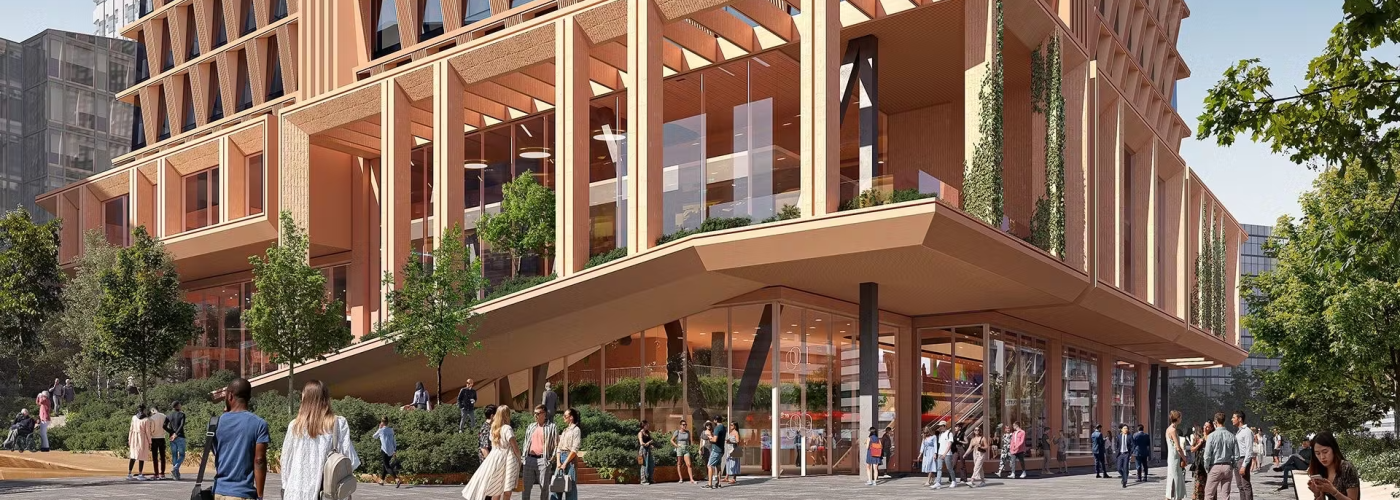Property company British Land has unveiled plans to redevelop London’s Euston Tower into a life sciences and innovation hub. The company has entered into discussions with Camden Council about plans to transform the building into a net zero workspace, using a combination of retention, re-use and a new ultra-low carbon structure.
The design work for the project is being led by Danish architects 3XN with support from the London-based architecture studio DSDHA. Both companies worked with British Land on Broadgate’s 2FA. The proposed design would retain a number of Euston Tower’s key features such as the foundations, basement and core.
The scheme will aim to reduce its carbon emissions throughout construction by retaining, re-using and re-cycling existing material, utilising low-carbon and recycled materials where new material is required and only using certified carbon offsets as a last resort.
Commenting on the project, David Lockyer, Head of Development, British Land, said: “This is a unique opportunity to transform a London landmark desperately in need of revival, ensuring it is fit for the future by adopting cutting-edge sustainability practices and attracting leading life sciences and innovation occupiers where it currently lies vacant.
“We’re committed to a comprehensive and transparent approach to sustainability, working closely with the London Borough of Camden and other key stakeholders to reimagine this office tower. The desire to retain, re-use and recycle as much of the building fabric as possible while creating high quality, flexible and sustainable workspaces is a blueprint for other projects facing similar challenges.”
Reflecting on their involvement, Audun Opdal, Senior Partner and Head of Design, 3XN, said: “We are proud to work on this highly progressive project and feel our proposals will transform the disused Euston Tower into a beautifully designed, sustainable new building, delivering workspaces for the future and accessible and inclusive spaces for neighbouring communities.
“Working with our innovation unit GXN, we will reuse and recycle materials throughout the development, and ultimately reach net zero at completion and in operation. As such, we have developed a guiding hierarchy for how we find the best place for any elements that are removed from the existing structure. Where we cannot retain materials in situ we are developing innovative methodologies for recycling and upcycling, working closely with research institutes to further this. Architecturally this will be a new breed of tall building, one that minimises operational energy use through passive design, reducing solar gain with less glazing and increased façade depth.”
Building, Design & Construction Magazine | The Choice of Industry Professionals





